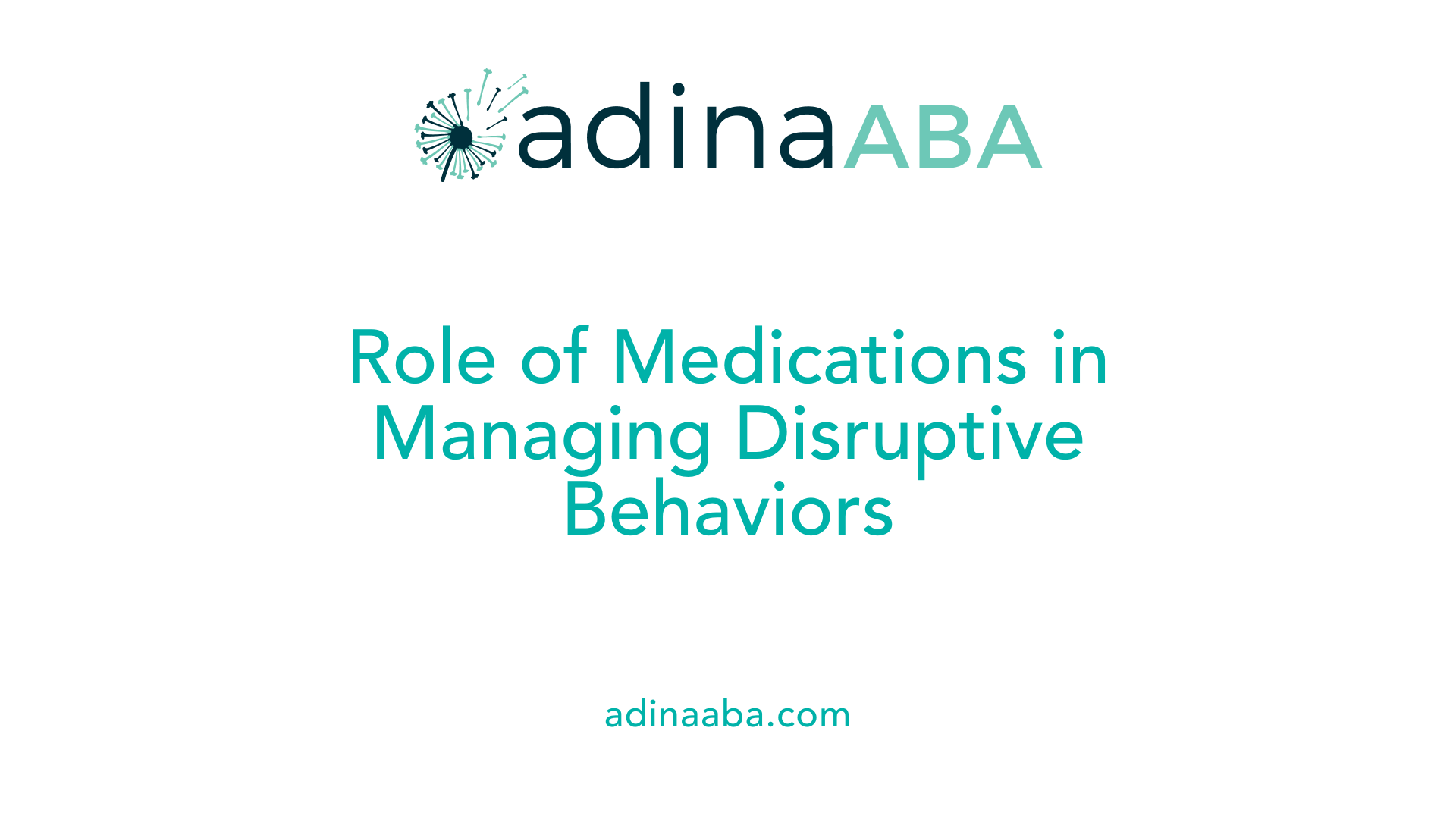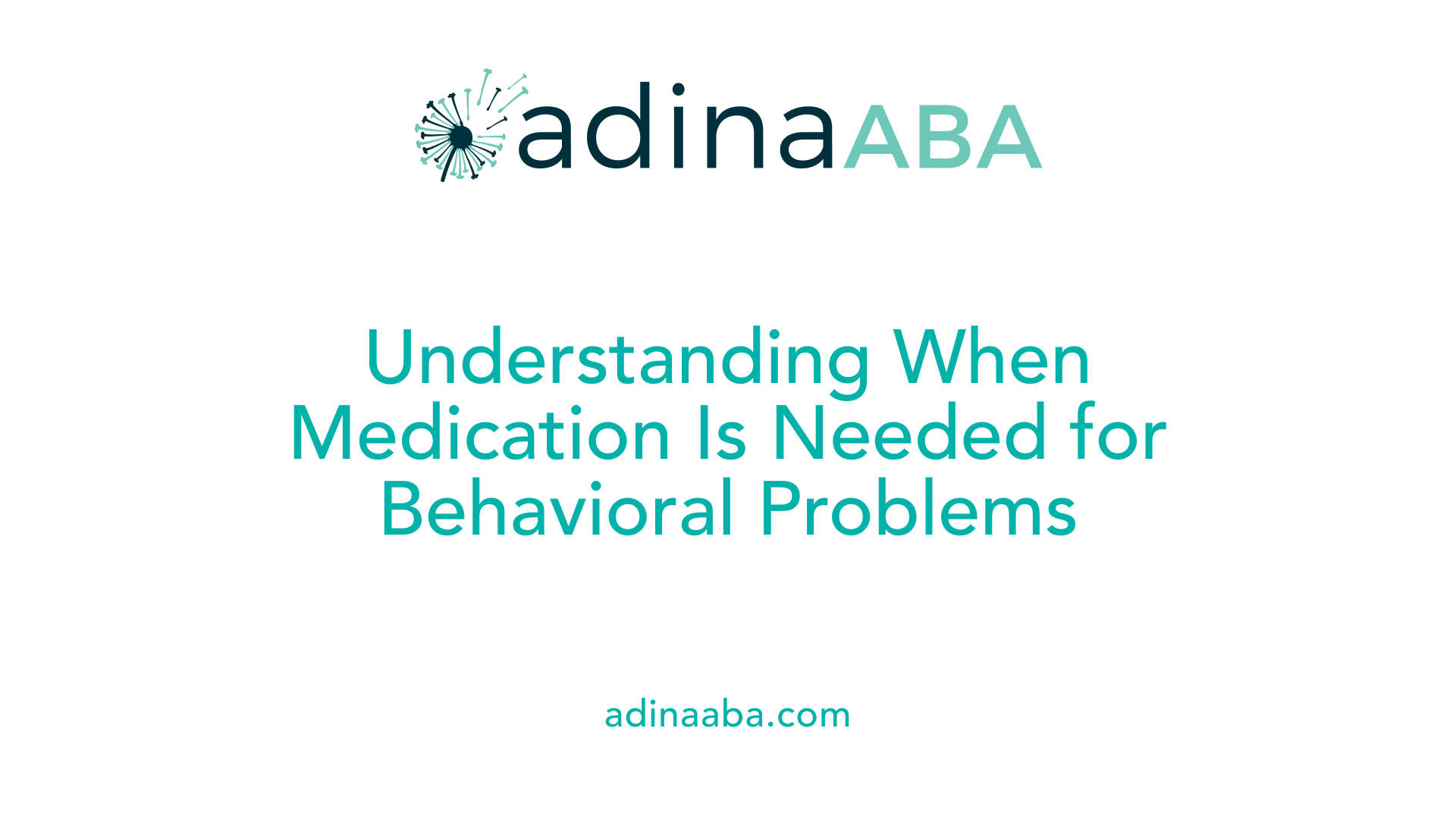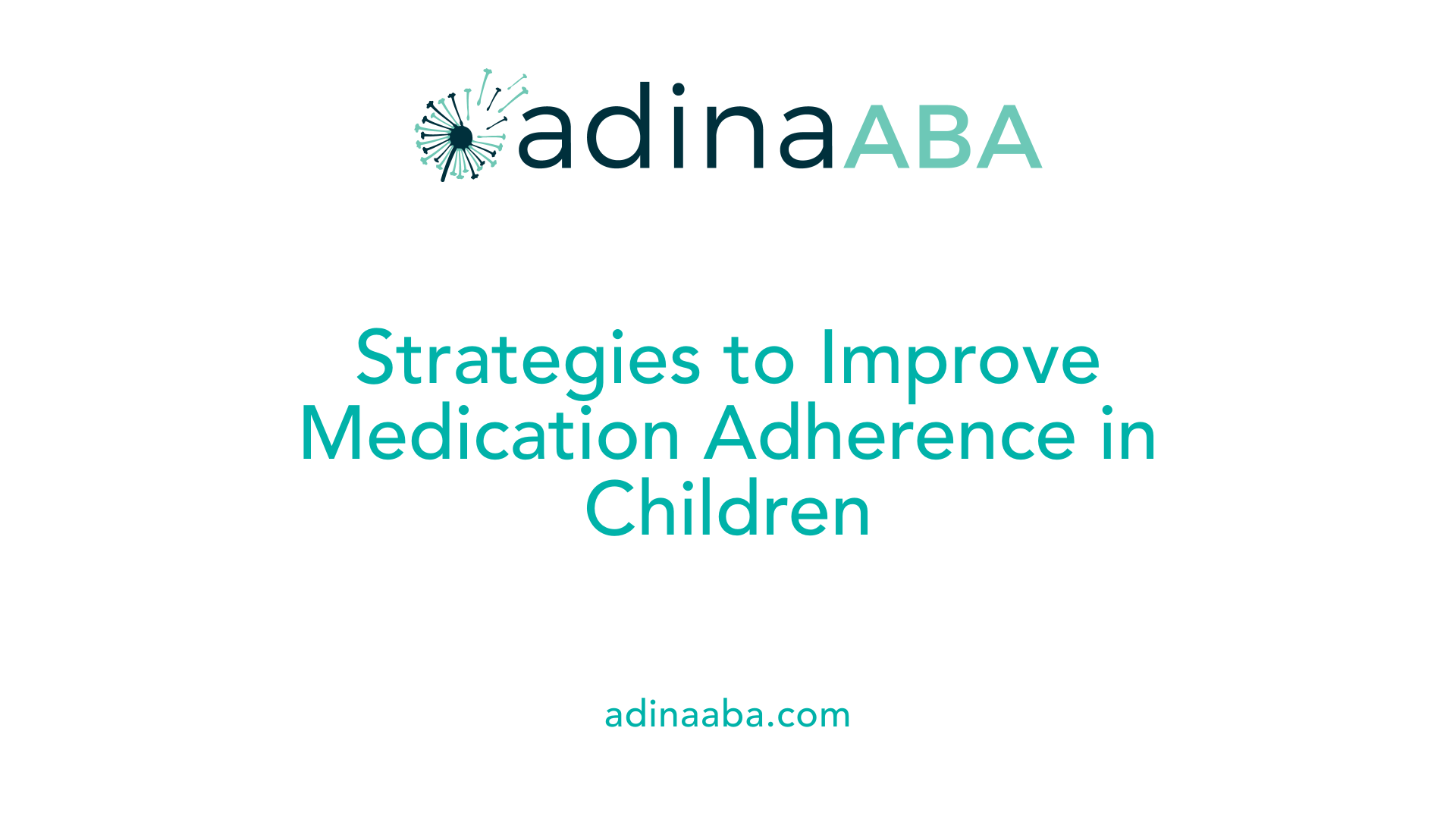Supporting children through medication changes with behavior

Understanding the Complexities of Medication Management in Children
Supporting children through medication changes requires a nuanced approach that balances medical, psychological, and social considerations. Behavioral and emotional responses to medication adjustments can be challenging, but with the right strategies, caregivers and professionals can foster stability and growth. This article explores best practices, behavioral interventions, safety considerations, and trauma-informed approaches essential for successful management.
Comprehensive Assessment and the Role of Medications

What medications are used for disruptive behavior?
Medications for disruptive behaviors in children and adolescents include several options tailored to the specific needs and underlying conditions. Stimulant medications like Adderall, Concerta, Focalin, Metadate, and Ritalin are the most common treatments for Attention Deficit Hyperactivity Disorder (ADHD). These drugs primarily aim to enhance attention, reduce impulsivity, and calming hyperactivity.
Non-stimulant medications such as Atomoxetine (Strattera) and Guanfacine ER (Intuniv) are also frequently prescribed. They are used especially for children who do not tolerate stimulants well or where comorbid conditions like oppositional defiant disorder or conduct disorder are present.
In some cases, anticonvulsants like Divalproex (Depakote) are used to manage aggressive behaviors linked to disruptive disorders. For severe cases exhibiting persistent aggression or irritability, second-generation antipsychotics—such as Aripiprazole (Abilify), Risperidone (Risperdal), and Ziprasidone (Geodon)—are considered effective. These medications can significantly reduce disruptive behavior symptoms but require careful monitoring because of potential adverse effects, including weight gain and metabolic risks.
| Medication Type | Examples | Primary Use | Notes |
|---|---|---|---|
| Stimulants | Adderall, Ritalin, Concerta | ADHD, hyperactivity | Often first-line treatment; quick onset |
| Non-stimulants | Atomoxetine, Guanfacine | ADHD, oppositional behaviors | Suitable for children intolerant to stimulants |
| Anticonvulsants | Divalproex (Depakote) | Aggression, mood stabilization | Used when aggression is prominent |
| Antipsychotics | Risperidone, Aripiprazole | Severe irritability, aggression | Monitor for significant side effects |
What is the role of behavioral and therapeutic interventions for children with behavioral challenges?
Behavioral and therapeutic strategies are fundamental for helping children with challenging behaviors develop necessary social, emotional, and communication skills. These approaches focus on understanding the child's unique challenges and building positive behaviors through evidence-based techniques.
Techniques such as Applied Behavior Analysis (ABA), cognitive-behavioral therapy (CBT), and social skills training help children learn alternative coping skills and improve their emotional regulation. Parental management programs empower parents with strategies for consistent discipline, positive reinforcement, and fostering supportive environments.
Early intervention is crucial. Creating structured routines, visual supports, clear instructions, and regular reinforcement enhances the child's ability to manage behaviors effectively. These interventions not only decrease immediate behavioral issues but also promote long-term skill development, social competence, and better family dynamics.
The overall goal is to address the root causes of behavioral problems, reduce reliance on medication, and improve quality of life. Incorporating these strategies leads to more sustainable improvements and fosters a trusting, supportive relationship between the child, family, and caregivers.
How should caregivers support children through medication adjustments?
Supporting children during medication adjustments requires proactive engagement and close collaboration with healthcare providers. Caregivers should first ensure they understand the reasons for any changes in medication, including expected benefits and potential side effects.
Monitoring the child's response is essential. Caregivers should observe and document behavioral changes, physical symptoms, and any adverse reactions, maintaining detailed records to share with clinicians.
Timing of medication changes should follow medical guidance—gradually introducing or tapering doses to identify the most effective and tolerable level. It's advisable to introduce only one medication at a time, allowing assessment of its impact before adding or adjusting another.
Alongside medication, caregivers should emphasize continued use of behavioral and psychological therapies, as these support long-term improvement. Maintaining consistent routines, providing positive reinforcement, and involving children in discussions about their treatment can foster cooperation and reduce anxiety.
Informed decision-making is vital. Caregivers should seek second opinions if there are concerns about overmedication or side effects. Regular communication with healthcare teams ensures the child's treatment remains safe, effective, and aligned with their evolving needs.
Overall, establishing trust, staying vigilant to the child's responses, and advocating for a balanced, comprehensive approach are the best practices to support children through medication adjustments.
Factors Influencing Medication Decisions and Monitoring in Children

What factors are considered when deciding whether medication is appropriate for a child's behavioral problems?
When healthcare providers evaluate if medication is suitable for a child's behavioral issues, they consider multiple aspects. The severity of symptoms is crucial; for example, extreme aggression or dangerous behaviors may warrant medication as a last resort.
Additionally, the presence of other mental health conditions or developmental delay informs the decision, as some medications may address multiple issues.
The child's previous response to various treatments is also assessed, including behavioral therapies or psychosocial interventions. Providers weigh the benefits of medication against potential risks such as side effects and long-term safety concerns.
Shared decision-making is vital, involving parents, caregivers, and the child when appropriate. This collaborative process helps clarify treatment goals, family preferences, and values.
Evidence indicates that combining medication with behavioral therapies can often produce better outcomes. Nevertheless, some studies show that effects are modest, emphasizing cautious use.
Ultimately, the decision to medicate balances clinical evidence, safety considerations, and individual circumstances, ensuring that the child's best interests and family preferences are prioritized.
Medications for Autism and Traumatic Backgrounds

Are there medications specifically approved or commonly used for treating autism-related behaviors?
There are indeed medications that are specifically approved for managing certain behaviors associated with autism spectrum disorder (ASD). The most notable are risperidone and aripiprazole, both of which are FDA-approved to treat irritability in children and adolescents with ASD. These medications have been shown to effectively reduce problematic behaviors like tantrums, aggression, and self-injury.
However, it’s important to understand that these drugs do not treat the core symptoms of autism, such as challenges with social communication or repetitive behaviors. For these core features, medications are generally used off-label, meaning they are prescribed based on clinical judgment rather than official approval.
Other medications like selective serotonin reuptake inhibitors (SSRIs) are sometimes used off-label to address symptoms such as repetitive behaviors or anxiety, but the evidence supporting their effectiveness varies. Overall, the primary role of medication in autism is managing challenging behaviors that interfere with daily functioning and quality of life.
Supporting Behavioral Change and Ensuring Adherence

What approaches enhance medication adherence and appropriate dosing during treatment?
Ensuring children follow their prescribed medication regimens correctly requires a comprehensive, child-centered strategy. Simplifying medication schedules by using once- or twice-daily doses can make adherence easier and more predictable for both children and caregivers. To make medications more acceptable, especially for younger children, healthcare providers might flavor medications or develop age-appropriate formulations, reducing resistance and improving compliance.
Education plays a vital role. Tailored counseling that explains the purpose of medications, possible side effects, and the importance of consistent use helps caregivers and children understand and cooperate. Understanding a child's developmental stage allows for more effective communication and adjustment of instructions.
Involving caregivers in monitoring medication routines is essential. Establishing daily routines and using reminder tools such as electronic monitors, pill boxes with alarms, or reminder caps can support consistent medication use. Positive reinforcement, like praise or small rewards, encourages children to adhere to their treatment plans.
A team approach enhances support, involving healthcare providers, family members, school staff, and pharmacists. Regular follow-up appointments ensure adherence, address concerns, and adjust treatment as needed. Addressing socioeconomic factors and providing culturally sensitive information help overcome barriers to compliance.
Overall, combining simplifying regimens, caregiver involvement, educational efforts, and community support creates a strong foundation for sustained medication adherence and appropriate dosing.
A Holistic Approach to Supporting Children
Supporting children through medication changes with behavior involves a holistic, individualized approach that emphasizes thorough assessment, careful monitoring, and collaboration among caregivers, healthcare professionals, and educational systems. Behavioral interventions, trauma-informed care, and caregiver support are vital in ensuring safe and effective treatment. Respecting the child's unique circumstances and fostering trust can lead to meaningful improvements in emotional and behavioral well-being, making medication management a true partner in fostering resilient, healthy development.
References
- Talking with your child's pediatrician about behavioral problems and ...
- Prescribing for Behavior - AMA Journal of Ethics
- Medication for Behavioral Problems in Children | NYU Langone Health
- State of the Evidence for Use of Psychotropic Medications in School ...
- Complete Guide to Multiple Medications - Child Mind Institute
- Nurturing Stability - The Importance of Medication Adherence for ...
- Behavior Therapy First for Young Children with ADHD - CDC
More Resources
Expert Clinicians
Get started today ->






.jpg)